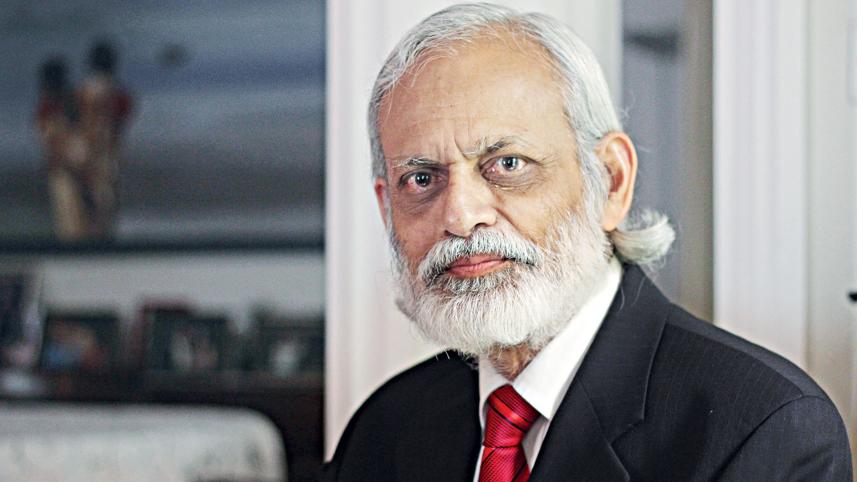Focus on bottom 40pc

Coronavirus infections have declined significantly. But the world is yet to fully recover from the health crisis. Recently, the war in Ukraine has created worries of a global food crisis and fears of a recession in major economies as inflation rages.
Bangladesh, which is dependent on international markets for a number of commodities as well as for exports, is also feeling the heat of global inflation, which is at its highest since 2008.
"So, crisis preparedness has become vital for the government," said Rizwanul Islam, an economist.
"We have to live with the pandemic for some more time. The war has added to the pandemic-related challenges. The war is affecting us although the conflict is taking place far away from us. The fallout of the war is so deep that it could lead to a global recession and an overall decline in demand."
The war has already accentuated the supply chain disruptions of a number of key commodities.
"Because of the supply chain bottlenecks, there is a danger of what we call imported-inflation," said Islam, a former special adviser in the employment sector of the International Labour Office in Geneva.
Food inflation can be very important for a country like Bangladesh since it hurts the poor more than other income groups because food spending accounts for a major part of their consumption basket.
"Imported-induced inflation is happening in Bangladesh," Islam told The Daily Star in an interview recently.
His observations came at a time when the government is preparing to unveil its budget for the fiscal year of 2022-23.
The economist also talked about the challenges facing Bangladesh owing to widening trade deficit and unfavourable balance of payments (BoP) as well as the need to make investments in education, health and social protection to improve the lives and livelihoods of people belonging to the low-income bracket.
"Don't ignore possible dangers. Keep monitoring and see what is happening rather than creating an alarm right away," he said, referring to the BoP trend and Bangladesh's debt burden.
Bangladesh has done well before the pandemic and its economy started recovering quickly after restrictions eased. But the question, he said, is whether all, across the board, are recovering at the same speed.
"The question is whether all the people are benefiting from the recovery, if not equally at least in an equitable manner. These are the real challenges at the ground level we need to focus on."
Islam said a budget is a short-term fiscal policy instrument containing plans on incomes and expenditures. But this should also be seen as a medium-term development instrument.
"In a developing country like Bangladesh, the budget should be seen as a mechanism to attain some development goals. The ultimate objective should be to bring about improvement to the living standard of people."
Islam thinks crisis preparedness should be a major element of the budget.
Apart from that, the government should give special focus on the bottom 40 per cent of the population who also creates a market.
"The top 10 per cent does not create the market alone. Those who shop on footpaths also create the market. But how do they create the market if they don't have the money to spend? So, when they have the money to spend, it is good for the economy."
He recommended launching a concrete programme and a social protection scheme for everybody with a specific focus on the bottom 40 per cent.
"I would also underscore that it has to be adequate, credible and really for everybody. It has to be sustainable."
He called for investments to improve the quality of general and technical education with a view to making them relevant to the need of the economy.
The poor should have access to quality education as well, he said.
"What kind of education their children are getting and how useful it is? How can the education sector be made more useful so that they can use that education to get better jobs and improve their livelihoods?"
The economist said effective and useful public health services that offer easy access to the bottom 40 per cent of the population are needed.
Bangladesh has the lowest health expenditure to gross domestic product among the South Asian countries.
"We need to have a health service that is inclusive, in terms of income and location," added Islam.




 For all latest news, follow The Daily Star's Google News channel.
For all latest news, follow The Daily Star's Google News channel.
Comments